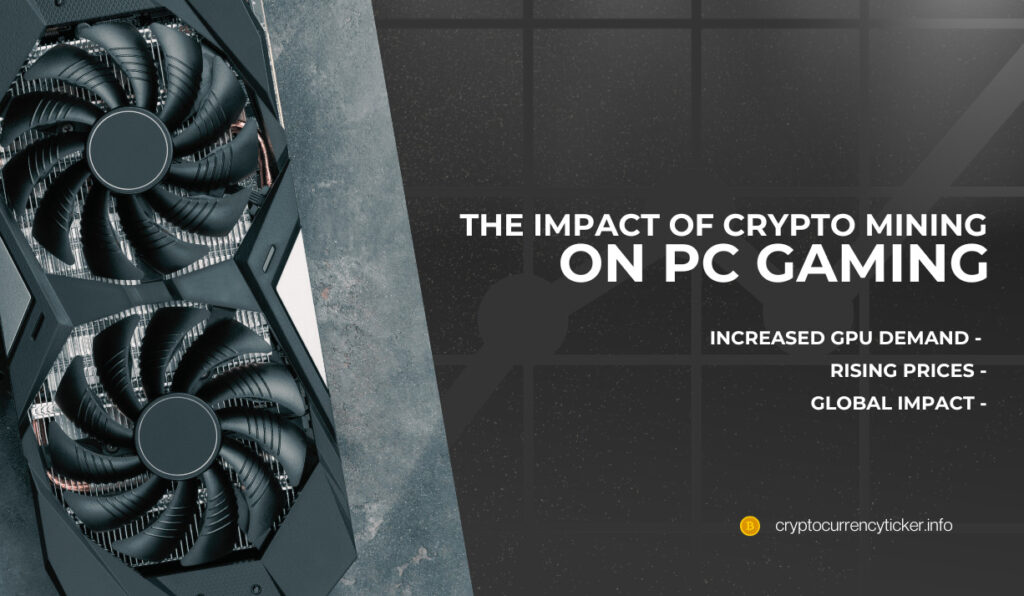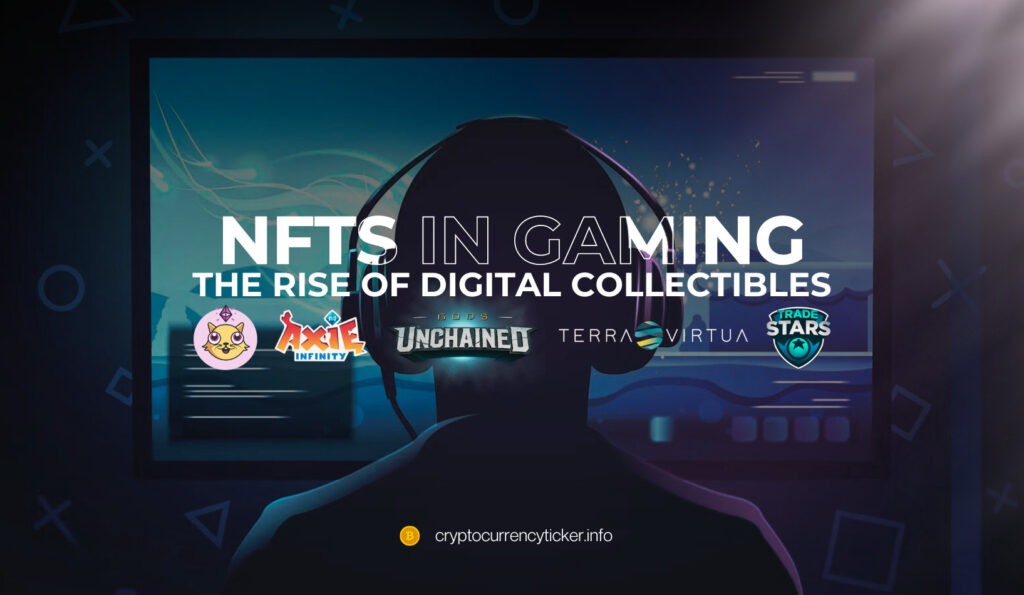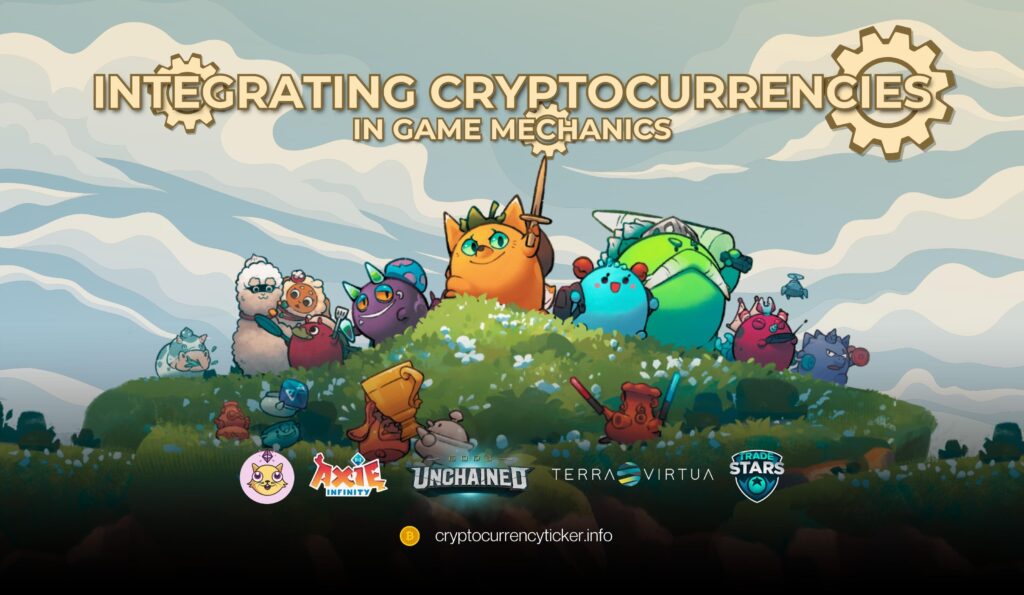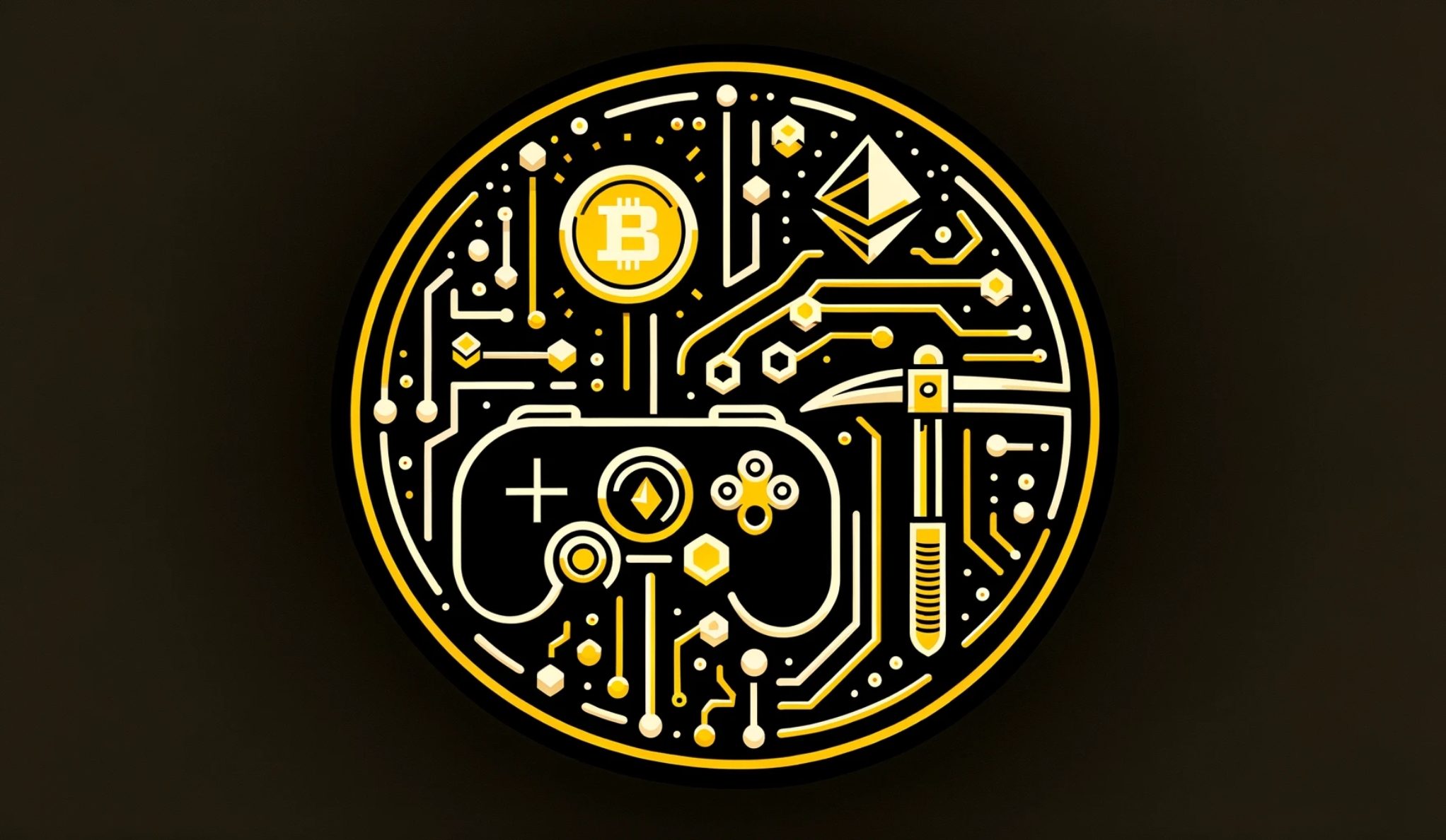At the intersection of cryptocurrency and gaming, a new digital economy is taking shape. Powered by blockchain technology, this fusion is revolutionizing gaming, transcending traditional play to incorporate real-world financial value. Gamers are now active economic participants, earning and trading digital assets like non-fungible tokens (NFTs), which bring rarity and tangible value to in-game items. This article delves into this transformative trend, exploring how blockchain is reshaping the gaming industry, not just as a technological tool but as a pivotal economic game-changer.
Understanding Blockchain in Gaming
Blockchain, the technology underpinning cryptocurrencies like Bitcoin and Ethereum, is now making significant inroads into the gaming industry. Its core features – decentralization, immutability, and transparency – are reshaping how games are developed, played, and monetized.
One of the primary applications of blockchain in gaming is through non-fungible tokens (NFTs). NFTs represent unique digital items that players can own, trade, or sell within and across gaming platforms. These tokens use blockchain to verify ownership and authenticity, ensuring that each item is one-of-a-kind and cannot be replicated.
The benefits of incorporating blockchain in gaming are manifold:
- Decentralization: Blockchain allows for a decentralized gaming economy where players have true ownership of their in-game assets, free from the control of any single entity.
- Provenance and Security: Blockchain’s transparent ledger means that the history of every in-game item is traceable, reducing fraud and enhancing security.
- New Economic Models: Blockchain enables innovative economic models in gaming, like play-to-earn, where players can actually earn real-world value through their in-game activities.
The integration of blockchain into gaming is not just a technical enhancement; it’s a paradigm shift. Games are evolving into platforms where virtual economies mirror the complexities of real-world markets, creating a unique intersection of entertainment, technology, and finance.
The Impact of Crypto Mining on PC Gaming

The surge in cryptocurrency prices has had a significant and somewhat unintended effect on the PC gaming community. The core of this impact lies in the increased demand for high-performance graphics processing units (GPUs), essential for both crypto mining and gaming.
Crypto miners, seeking the computational power of GPUs for efficient mining, have driven up demand, leading to a global shortage and subsequent price hikes. This situation has affected the affordability and availability of GPUs for gamers. Key points of this impact include:
- Increased GPU Demand: Cryptocurrency miners have been purchasing GPUs in large quantities, leading to a shortage in the market.
- Rising Prices: The high demand for GPUs by miners has led to a sharp increase in prices, making them less accessible for the average gamer.
- Global Impact: Approximately 1.22 billion PC gamers worldwide are affected by this shortage and price rise, altering the landscape of PC gaming accessibility.
Companies like Nvidia, a major player in the gaming industry, have responded to this situation. Nvidia has urged retailers to prioritize gamers over miners in GPU sales and even considered introducing mining-specific GPUs to alleviate the pressure on gaming-oriented graphics cards.
Corporate Responses to the GPU Shortage
Nvidia’s Advocacy for Gamers
Nvidia, a leading GPU manufacturer, has actively addressed the GPU shortage issue. Their stance is clear: gamers should be the primary beneficiaries of their GeForce product line. Nvidia has urged retailers to prioritize the gaming community in GPU sales, emphasizing the importance of keeping these components accessible to gamers.
Developing Mining-Specific GPUs
To mitigate the impact on the gaming community, Nvidia has explored developing GPUs specifically designed for crypto mining. This move aims to redirect miners’ demand away from gaming GPUs, thereby alleviating the pressure on the supply for gamers.
Software Measures to Discourage Mining
Nvidia has also implemented software tweaks in their gaming GPUs to reduce their efficiency for crypto mining. This strategy is intended to make gaming GPUs less attractive to miners, ensuring that these components are more likely to end up in the hands of gamers.
Retailer Strategies to Support Gamers
Retailers have responded by implementing purchase limits on GPUs to prevent bulk buying by miners. Some have introduced policies like offering discounts or priority access to customers buying GPUs as part of a complete gaming setup. These measures are aimed at ensuring that gamers have access to the necessary hardware.
NFTs in Gaming: The Rise of Digital Collectibles

The introduction of Non-Fungible Tokens (NFTs) in gaming has marked a significant shift in how digital assets are perceived and valued. NFTs represent unique, indivisible, and verifiable digital items that can be traded and owned within gaming ecosystems, providing real-world value to virtual items.
Transforming In-Game Assets
NFTs have transformed traditional in-game assets like skins, characters, and virtual land into valuable digital collectibles. By using blockchain technology, these assets are authenticated, ensuring their uniqueness and ownership, which can be easily verified.
Economic Implications
The rise of NFTs has led to new economic opportunities within games. Players can now own, buy, sell, or trade their digital assets in a marketplace, similar to physical collectibles. This has created a new revenue stream for both players and developers, as these assets can accrue value over time.
Examples of NFT Integration
Popular games have started integrating NFTs, allowing players to gain exclusive content and experiences. For instance, some games offer limited edition digital collectibles as NFTs, which can be traded on various platforms.
Addressing Challenges
While NFTs offer significant benefits, they also bring challenges such as ensuring the stability and security of these digital assets, and managing their impact on the game’s economy.
Play-to-Earn: Gamifying Crypto Rewards
The emergence of ‘Play-to-Earn’ models in gaming represents a significant evolution in how games are monetized and how players interact with them. This model blends gameplay with financial incentives, offering players the opportunity to earn cryptocurrency rewards for their in-game achievements and contributions.
Concept of Play-to-Earn
- Gameplay and Earning Combined: Players earn cryptocurrencies or digital assets while playing the game. These rewards can sometimes be traded on various platforms for real-world value.
- Incentivizing Player Engagement: This model encourages continuous engagement, as players have the potential to earn tangible rewards.
Economic Opportunities
- New Revenue Streams: Players can generate income through regular gameplay, creating a new type of digital economy within the game.
- Empowering Players Financially: This system provides a way for players to monetize the time and effort they invest in gaming.
Challenges and Considerations
- Balancing the Economy: Ensuring that the play-to-earn model does not disrupt the game balance or lead to pay-to-win scenarios.
- Sustainability: Maintaining the economic viability of such models for both developers and players in the long term.
Cryptocurrency’s Influence on Game Development
Cryptocurrency is not only changing the way players interact with games but also how they are developed. This influence is shaping new frontiers in game design and monetization strategies.
Integrating Cryptocurrencies in Game Mechanics

- In-Game Transactions: Cryptocurrencies are being used to facilitate in-game purchases, offering a secure and efficient means of transaction.
- Tokenization of Assets: Developers are exploring ways to tokenize in-game assets, allowing players to own and trade these assets across different games and platforms.
Advantages for Developers and Players
- New Revenue Models: Cryptocurrencies open up novel monetization avenues for developers, such as microtransactions and token sales.
- Enhanced Player Engagement: The ability to earn and trade digital assets can lead to higher engagement and retention rates.
Challenges in Implementation
- Balancing Game Dynamics: Ensuring that the integration of cryptocurrency does not disrupt the gameplay experience.
- Security Concerns: Protecting the game’s economy from potential fraud and ensuring the security of players’ digital assets.
Expert Insights: Navigating the Crypto-Gaming Landscape
The intersection of blockchain and gaming is a dynamic and rapidly evolving space, requiring careful navigation and informed decision-making. Expert insights play a crucial role in understanding and leveraging the opportunities in this domain.
Trends and Opportunities
- Industry Trends: Experts provide valuable analysis of current trends, helping to understand the direction in which crypto-gaming is heading.
- Investment Opportunities: Insight into potential investment opportunities within the crypto-gaming space is vital for those looking to capitalize on this trend.
Overcoming Challenges
- Security and Regulation: Experts offer guidance on navigating the complex landscape of security and regulatory considerations in crypto-gaming.
- Sustainable Development: Insights into sustainable development practices help ensure long-term success and viability in the crypto-gaming market.
Conclusion
The intersection of crypto and gaming is more than a mere convergence of technologies; it’s a revolutionary step towards redefining the gaming industry. As we have explored, blockchain and cryptocurrency are introducing new possibilities, challenges, and economic opportunities in gaming. From the impact of crypto mining on PC gaming to the rise of NFTs and play-to-earn models, the landscape is undergoing a dramatic transformation. As this space continues to evolve, staying informed and adaptable will be key. For gamers, developers, and investors alike, embracing the blockchain revolution in gaming could mean not just adapting to change but leading it.
